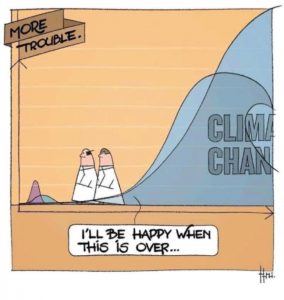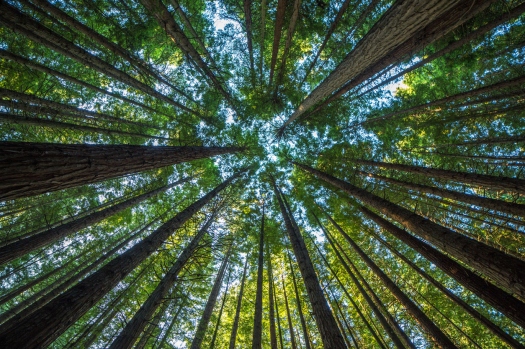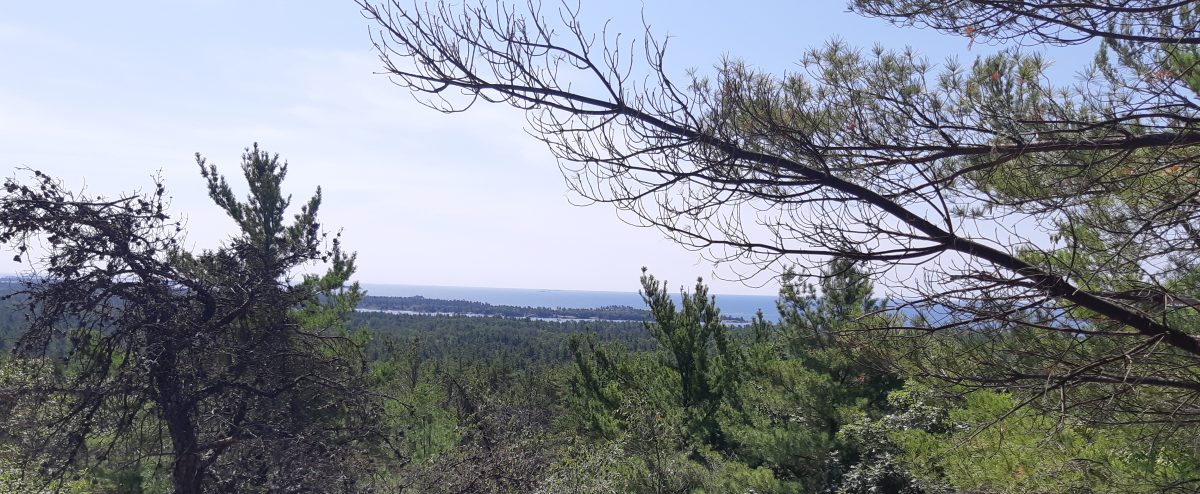
I hope so – we need things to change for the better!
A crisis (from the Greek for ‘decision’) inevitably results in change, and not always good change, as Naomi Klein showed us in her book ‘The Shock Doctrine‘. The media is full of ideas about how things are going to be different, and what the new normal will be like. Here’s the Globe and Mail’s interesting look at the future for Canada. But there are lots of different thoughts out there, forecasting both negative and positive possibilities.

So: What can we do to help ensure that change is positive and benefits people and the planet, not just corporations or neoliberal governments? How can we remain optimistic, and find the will and the energy to expect and demand that our governments move us in a positive direction? The bottom line: the coronavirus has created this crucial moment, and we are unlikely to have a better chance to make change.

Now is the time!
For those of us sitting at home for the past weeks or months, there has been a lot of time to think about what is essential, and what is not. The list may not be very long – my list includes friends and family, food, shelter and medicine. Much of the other stuff in our lives looks serious less important than it did – and for your average Canadian, that’s a lot of stuff! Maybe those of us who are well off might think that we can have less stuff, and share the wealth more broadly, both domestically and internationally.

This pandemic has put the spotlight on a lot of problems that have been easy for many of us to ignore in the past . In Canada, we see much more starkly the inadequacy of affordable housing, long term care homes, labour protection, health care systems, domestic violence, childcare, globalized supply lines and more. And contrary to expectations, air pollution has not gone down much, showing that cars aren’t as big a source as we might have thought. Behind much of it is a very undemocratic level of inequality. We have a small number of extremely (obscenely?) rich people, and a very large number of people in poverty or extreme poverty, even in rich, ‘democratic’ countries like Canada.

There are some very strong arguments that most social problems have their roots in income inequality. In the book “The Spirit Level”, it is shown that that overall wealth of a country (among well-off Western countries) is a less important factor in well-being than the size of the income gap. The worse the inequality, the worse off the country is in terms of economic stability, education, social mobility, health, crime, trust and general happiness.
The incomes of the poorest 10% of people increased by less than $3 a year between 1988 and 2011, while the incomes of the richest 1% increased 182 times as much.
Oxfam Report: An economy for the 99 per cent
https://www.oxfamamerica.org/explore/research-publications/an-economy-for-the-99-percent/
In the world as a whole, it is clear that the rich are getting richer. The rest of us are working harder, generally being more productive, and not improving our real incomes. Predictions show that we are heading back to the situation of the Gilded Age, with severe wealth inequality, and the rich running everything for their own benefit. Only a Depression and two massive wars destroyed the power of that inherited wealth and allowed a wider prosperity to grow in the mid twentieth century, according to Piketty.
Eight men now own the same amount of wealth as the poorest half of the world.
Oxfam Report: An economy for the 99 per cent
https://www.oxfamamerica.org/explore/research-publications/an-economy-for-the-99-percent/
Resources There are excellent resources which can update you on the seriousness of the inequality problem. Robert Reich’s film “Saving Capitalism” is available on Netflix. Here is the trailer. The big one is Thomas Piketty’s book “Capital in the 21st Century”, which clocks in at 696 pages. Definitely a surprise best seller when it came out a few years ago! Here is a very short guide to its main points. There is also a recently released film based on his book.

The point is, whatever our hopes for the future, we have to motivate ourselves to take action here to make sure positive change happens, including planet-saving as a priority in all solutions. A lot of this depends on increased funding, and increased taxes on wealth, as happened after the two world wars. Many of us have seen how important governments have been during this crisis, and want more government action. Let’s get them to continue on with the work of making this a more equal society which also treats the planet well. For example, we can support LEAF in their fight for a Canadian Green New Deal, helping people and the environment. Whatever your issue, there is a non-profit organization working to mobilize resources and government support, just a click away. We should also support news media who are playing such an important role in informing us and harassing governments to do a better job.
We can also write emails. I can hear the groans! What difference does one email to my MP or PM make? But that’s exactly why it’s so important that we all have to write lots of emails. That will have an effect. Here are a few shortcut links, but all you have to do is Google it to get a contact for any politician.
Many thanks to all of you who have read this long-ish blog to the end! If there’s one must-read article about the possibilities for change, it’s this – “Hope in a time of crisis” by Rebecca Solnit in The Guardian. It’s a longer read, (available in print or as a podcast here) but with a more thoughtful, historical and philosophical view of disasters and their effects and possibilities. I’ll close with a quote from her:
I often think of these times as akin to a spring thaw: it’s as if the pack ice has broken up, the water starts flowing again and boats can move through places they could not during winter. The ice was the arrangement of power relations that we call the status quo – it seems to be stable, and those who benefit from it often insist that it’s unchangeable. Then it changes fast and dramatically, and that can be exhilarating, terrifying, or both.
Rebecca Solnit, What coronavirus can teach us about hope, The Guardian
Next blog topic: How to overcome our activism inertia.

